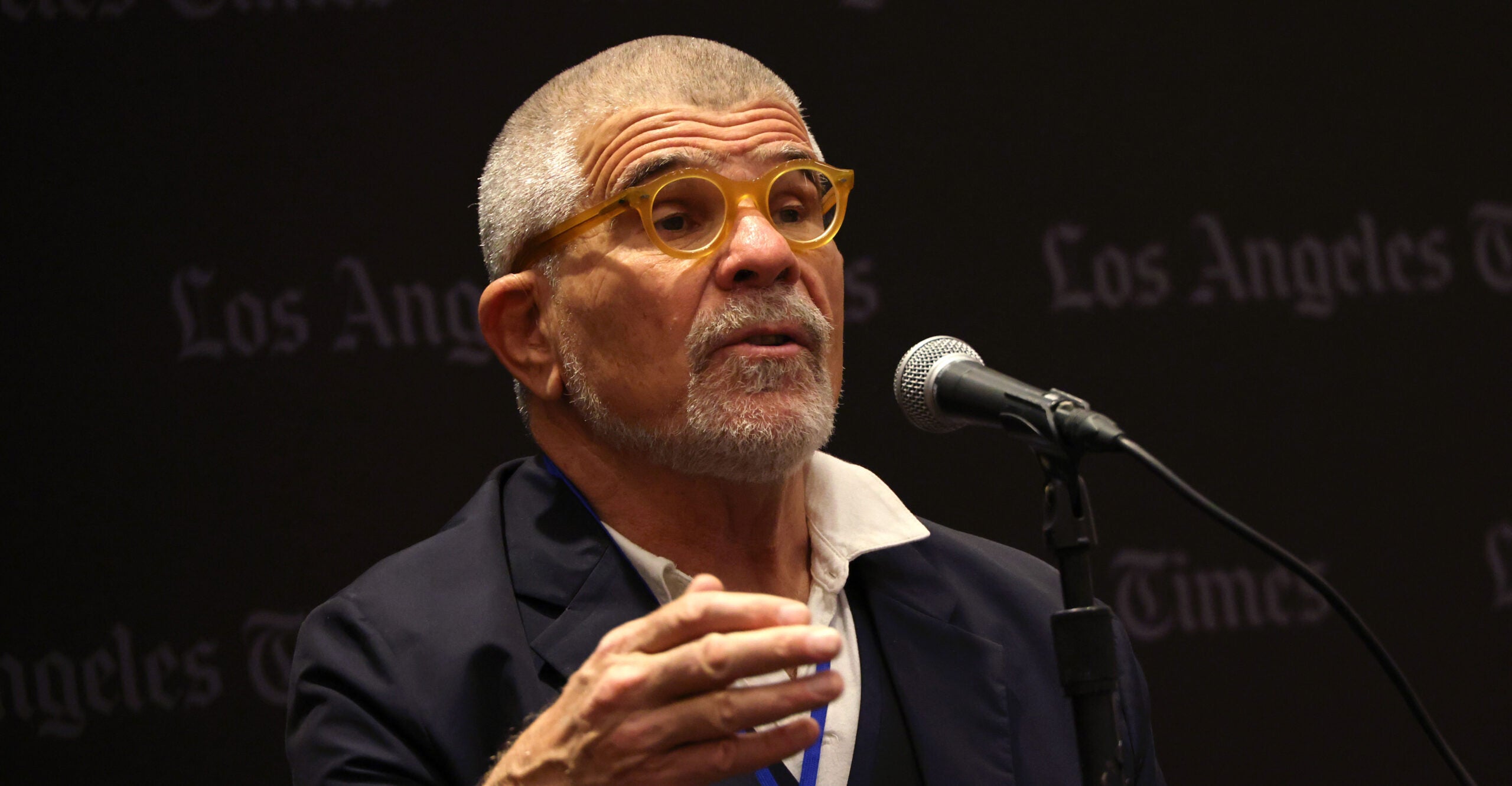
www.dailysignal.com
Up Close and Personal With David Mamet
Before he was David Mamet the acclaimed author, filmmaker, and Pulitzer Prize-winning playwright, he worked a variety of low-paying jobs well into his 20s: from kitchen help at a summer camp to a maintenance worker in a truck factory to working in the Merchant Marine doing maintenance on boats. Mamet said he knows what it’s like to get your hands dirty to make ends meet.
“I also worked in a day camp teaching. Even right after I got out of college, I was unemployable, didn’t have any skills, and the degree wasn’t worth anything,” Mamet said in an interview with the Washington Examiner.
“The one thing I knew how to do was to work because they say, ‘You can’t get work in Chicago, you can’t work.’ Well, I found ways to work because I had to,” the Chicago native said.
All of these experiences formed not just his distinctive talent capturing the human experience with blunt, raw, emotional dialogue. They allowed him to capture what the loss of dignity and power does to men in the American workforce, how betrayal and chaos creates complicated relationships, and how the slow breakdown of morality through outside pressures can lead the everyman toward catastrophe.
Through it all, one common thread in his work is what he refers to as his “crazy love of our country.”
“My grandparents were immigrants. My dad was raised by a single mom during the Depression, very, very poor, and she didn’t speak English, and I knew my grandmother very well,” he recalls with deep fondness, adding, “She was a wonderful woman.”
Mamet said his father grew up and went to college on the GI Bill, got into Northwestern University, and graduated first in his class.
“And then he set out on the business of going to work. He worked like a son of a b—and he worked all day and he’d come home, we had dinner, he’d take a bath, put on his bathrobe, and that’s what I remember him doing every night,” he explains with deep admiration.
As a result, Mamet emulated his father’s work ethic.
“So I always worked as a kid. I worked weekends and holidays and all the summer vacations, so I knew what it was to get a job and go to work.”
After Mamet earned his Merchant Mariner card, he went to New York but struggled to find work.
“So I went back to Chicago and worked cleaning offices, and I worked a lot of stuff in food preparation and service, and I drove a cab for a year there, a whole bunch of stuff,” he explained.
Somewhere in there he said he started writing plays.
“I got asked to come back to this college and work directing theater,” he explained.
After the position ran out, he along with fellow thespian William H. Macy, whom he had known since college, decided to go off on their own and start their own theater company.
“It was called the St. Nicholas Theater. And we started putting on plays and we all had day jobs, all of us, and there wasn’t any money. We had the time of our lives. And one thing led to another. And I went to New York and I won the Obie Award from the Village Voice, and I started to make a little living as a playwright, which I didn’t even think was possible,” Mamet said.
Boy, was it ever a living.
Mamet would go on to write the Pulitzer Prize-winning play “Glengarry Glen Ross” as well as “Oleanna,” “Speed-the-Plow,” which earned him a Tony nomination, and “American Buffalo.” His screenplays include “The Verdict,” for which Mamet received an Academy Award nomination, and “The Untouchables” and “Wag the Dog,” which earned him his second Oscar nomination.
Mamet said 50 years after starting his first theater company and writing his first plays, he is still in awe that it happened.
“I am very, very, very grateful to be in America, where immigrant people send their kids into the professions and they send their kids like me into the arts. And that’s my story. I’m very grateful for that. I lived in a time when I could make a living writing plays,” he said.
He was Hollywood and Broadway’s darling until 2008, when the Village Voice asked him to write a story about a play he had done centering on American politicians, a profession he said he always found amusing.
“Growing up in Chicago and working in everything in the world, I was no stranger to shakedowns both by the administration. The question always was, who do you got to pay around this place?”
“The idea of corruption growing up in the Mayor Daley Chicago was the way things were. So I wrote a play about politics, making fun of politics, and the Village boys asked me to write an article about the play,” he added.
Mamet called the article “Political Civility.”
“I said, we’ve got to be civil with each other. This is a comedy. It’s about how all politicians are a bunch of whores. We all know that, but we must be civil in our actual political discourse. I said, I’m not even civil to myself. I always describe myself as a brain-dead liberal.”
Those last three words, “brain-dead liberal,” and why Mamet was no longer one, became the choice of the part of the Village Voice headline that read, “David Mamet: Why I Am No Longer a ‘Brain-Dead Liberal.'” The pushback was ugly.
Mamet said he had gone from the golden boy to the boy whose number everyone lost.
“I had a lot of time on my hands because I wasn’t writing plays anymore. People wouldn’t put them on if you still put them on Broadway. But the regional theaters, which always did my plays and always accepted my new plays, decided not to,” he said.
His essay collection “Everywhere an Oink Oink” is a humorous take on his time in Hollywood. It contains the exact type of dialogue you’d expect from Mamet prose. His wit and his take on Hollywood’s culture of greed and compromise comes to life in vivid observations.
His latest book is aptly called “The Disenlightenment: Politics, Horror, and Entertainment.” It is a force of nature that examines our corporate curators who hold power in government, institutions, academia, politics, and of course, Hollywood. They are seen with a keen, unfiltered eye that deconstructs the influence they have had on everything we see, feel and touch. Prepare to buckle your seat belt as he offers his views on the deep state and its impact on our constitutional protections.
COPYRIGHT 2025 CREATORS.COM
We publish a variety of perspectives. Nothing written here is to be construed as representing the views of The Daily Signal.
The post Up Close and Personal With David Mamet appeared first on The Daily Signal.

















